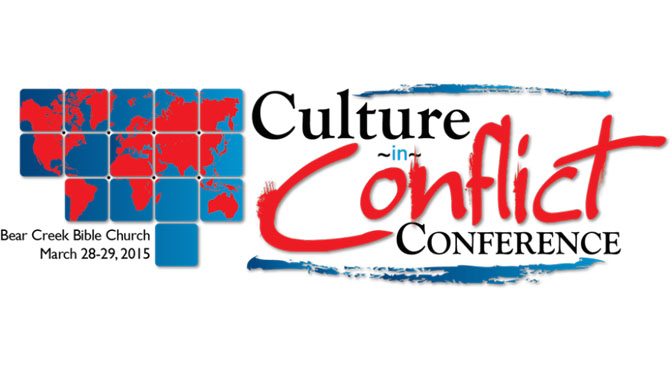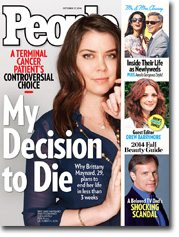Steve Cable explores the results of Probe’s survey of 18- to 40-year-old born agains, focusing on the role of parents in their faith.
The State of Born Again Emerging Adults
 In previous articles{1} we considered the dramatic changes in the beliefs of American evangelicals particularly among young adults. It certainly appears that we are sliding into an era of cultural captivity where one’s identification with Christ and an evangelical church does not keep one from holding a set of beliefs consistent with the culture and counter to biblical truth. Here we want to consider the role that parents had in establishing these inconsistent belief systems of their children, and think about some ways today’s parents may be able to counter these destructive patterns in the future. Before looking at the roles parents do and should play in establishing these belief systems, let’s consider some of the key belief trends that are driving our concern.
In previous articles{1} we considered the dramatic changes in the beliefs of American evangelicals particularly among young adults. It certainly appears that we are sliding into an era of cultural captivity where one’s identification with Christ and an evangelical church does not keep one from holding a set of beliefs consistent with the culture and counter to biblical truth. Here we want to consider the role that parents had in establishing these inconsistent belief systems of their children, and think about some ways today’s parents may be able to counter these destructive patterns in the future. Before looking at the roles parents do and should play in establishing these belief systems, let’s consider some of the key belief trends that are driving our concern.
Foremost among our concerns is the dramatic change in the number of young adults who hold to no Christian religious beliefs or espouse a liberal view of Christianity. Looking at data from 1970 to the present, we uncover a disturbing new trend. From 1970 through 1990, the number of 18- to 25-year-old Americans who professed no Christian belief was constant at about twenty percent of the population. In 2000, this non-Christian group had grown to about thirty percent of this young generation, and by 2010 the numbers had exploded to around thirty-six percent.{2} If this trend continues, less than half of young adults will consider themselves Christians by the year 2020.
This concern over the future is heightened by the conflicted beliefs of young born agains. Among young adults, who consider themselves born again believers, only about one-third of them ascribe to a basic set of biblical beliefs. These beliefs include a creator God, a sinless Jesus, salvation through grace, a real Satan, an accurate Bible and the existence of absolute moral truths. This statistic means that over two-thirds of these born agains do not ascribe to one or more of these beliefs. Overall, this means that less than ten percent of young American adults profess to being born again and hold to a set of biblical beliefs as compared to the sixty-eight percent who hold to no Christian beliefs or a liberal view of Christianity.
When we delve further into young adult beliefs, we find that their beliefs appear to be hodgepodge of cultural concepts and what’s going on in their life, with little or no connection to their religious upbringing. Even though emerging adults looked to religion as a place to learn good morals, in his study Christian Smith discovered a chilling paradox. “It was clear . . . that emerging adults felt entirely comfortable describing various religious beliefs that they affirmed but that appeared to have no connection whatsoever to the living of their lives.”{3} One emerging adult observed, “I don’t think it’s the basis of how I live, it’s just, I guess I’m just learning about my religion and my beliefs. But I still kinda retain my own decision or at least a lot of it on situations I’ve had and experiences.”{4} In fact, when we look at how many have a consistent biblical worldview that carries over into their views on sexuality, science, a concern for the poor, and basic religious practices, the survey data indicates that less than two percent of evangelical young adults would qualify. So the overwhelming majority of young evangelicals are not carrying their basic religious beliefs into the realm of everyday decision making.
The Impact of Parents on Spiritual Beliefs
So, what role did their parents have in establishing these inconsistent beliefs?
In 2010, we commissioned a survey to help us examine the causes and potential opportunities to change the marked shift in the thinking of young adults over the last decade. We surveyed over 800 born again, young adults across America to get an understanding for what they thought about spiritual and cultural issues and how they felt about their beliefs and actions. One area of questioning was, “When you think about how you developed the religious beliefs you hold today, who do you feel had the greatest influence on you? Did your beliefs come from your family, your friends, your church, your independent studies, your college professors, or others?”
The answers we received to this question were not shocking but still sobering. More than sixty-five percent of the respondents reported that the source that had the greatest influence on their religious beliefs was a family member, with the vast majority of those saying it was parents or grandparents. Over twenty percent of the respondents pointed to another influential individual such as a pastor, youth leader, or college professor. Only about eleven percent stated that something less personal such as a youth group or the Bible was the greatest influencer of their religious beliefs.
As Christian Smith noted, “What the best empirical evidence shows . . . is that . . . when it comes to religion, parents are in fact hugely important.”{5}In fact, “religious commitments, practices, and investments made during childhood and the teenage years, by parents and others in families and religious communities, matter—they make a difference.”{6}
Of those who stated that a family member was the primary influence, over seven out of ten stated it was their mother or grandmother while less than three out of ten said it was their father or grandfather. So clearly among born again young adults, the female side of the family has a greater influence in passing down religious beliefs than do the males. One can postulate that this may be due to a combination of greater spiritual involvement on the female side of the family and a higher level of communication with their children. However, the rate of fatherly influence almost doubles for young adults with a biblical worldview compared to those without such a worldview. So it appears that fathers who hold a biblical worldview are much more likely to be involved in establishing the spiritual beliefs of their children.
Less than one out of ten of the respondents listed a pastor as the primary source of influence, and only three percent listed a youth group. These church-related functions may have an important role in helping to shape our religious beliefs, but our survey shows that it is at best a secondary role for the vast majority of people. We are mistaken if we are relying on the church to pass on the right type of beliefs to our children. Parents, what you communicate through your lives is picked up by your children. What are you communicating to them concerning religious beliefs?
The Translation of our Beliefs
Since the beliefs of today’s young adults are dramatically different than the dominant beliefs of forty years ago, does this mean that older adults have changed their beliefs as well, or have the beliefs been translated by the younger culture into something different?
An important part of understanding this question is that the survey results on who was the most significant source of our religious beliefs were almost identical regardless of racial background or levels of church attendance. In other areas of consideration such as biblical worldview, views on cultural behavioral issues, and church involvement, we found significant differences based on racial background, education, etc. But it appears clear that no matter our race, economic level, or religious beliefs, our mothers are the primary sources that pass down those beliefs to the next generation. In other words, if born-again believers have degraded views on worldview and cultural issues, it appears that their parents are communicating (or at least not contradicting) similar views.
As we look at the hodgepodge of religious and cultural beliefs held in our society, we can see the results of what Christian Smith referred to as “Moralistic Therapeutic Deism.”{7} The Baby Boomers and their children are captives of our society’s focus on pluralism and tolerance as the only acceptable views. With this view, I can hold to certain religious beliefs that are strictly private in their application. But, when those religious views begin to move into areas which may imply someone else’s belief is wrong, then I need to modify my beliefs to be more accepting. To believe in God as creator and Jesus as his sinless Son is probably okay. But when I say that Jesus is the only way we can be reconciled to God, I am starting to step on other’s toes, making it inherently wrong.
On the one hand, Baby Boomers have bought into the cultural distaste for absolute beliefs which makes them loathe to state their beliefs too strongly. This viewpoint has been interpreted by the younger generation as an indication that those beliefs are not firm but rather culturally determined. So living in a more multi-ethnic, culturally diverse, and sexually liberated generation, these young adults pick and choose among biblical beliefs and distinctly non-biblical beliefs, with no apparent concern for the discontinuity in their belief systems.
The culture is winning the battle on two fronts. First, the older generation is buying into the importance of not being too forthright with their views. Second, the younger generation, given no clear direction from their parents, is buying into a disjointed set of views that avoids any conflict with others. According to Smith’s research, the result is that the vast majority of young adult Americans are holding to some form of mainline Protestant philosophy. This philosophy states that Jesus is a worthwhile model of good behavior but our focus should be on getting along and not making waves rather than promoting faith in Christ.
Countering Parents with a Truth Experience
Have we, the Baby Boomers, the parents and grandparents of our society, so flummoxed up the works that we have started a downward spiral of disconnected beliefs from which we cannot recover? Of course, time will tell, but if we hold to a consistent set of biblical worldview beliefs, we should not sit back and wait patiently for the end of Christianity as we know it. We are called to “proclaim Him, admonishing every man and teaching every man so that we might present every man complete in Christ” (Col. 1:28).
Interestingly, of those respondents who graduated from college and have a biblical worldview, a much greater percentage of them pointed to a source other than a family member as the most influential. This factor is probably the result of college students having their faith challenged and looking for answers from pastors, Bibles, and books. In other words, the direct challenge to their faith presented by some professors and many of their peers caused some to fall away but caused others to examine the reasons for their belief in Christ. We do not need to fear this examination. Our Lord’s case is more than capable of standing up to examination. In fact, it is the only religion that has a consistent, viable explanation for the complexities and shortcomings of life as we know it.
If a hostile, or at least a highly skeptical, attack on the basis of their faith caused some to examine their reasons for belief and come out with a stronger, more biblical faith, perhaps a friendly encouragement to examine their faith could produce similar results. If the parents are passing on a watered down, inconsistent set of beliefs, perhaps we can change those beliefs by causing the young adults to run them through a consistency and credibility filter. Probe has been doing this for years through our Mind Games conferences and summer camps for high school students. We have seen that this approach makes a difference.
Is it too late to make a difference in the lives of our young adults? When Viggo Olsen was in his mid-twenties, beginning his residency to become a doctor, his wife’s parents had a change in their belief system, becoming followers of Jesus Christ. Viggo wanted to restore his wife’s parents to sanity so he began an intense study to show the obvious failure of Christianity to address the real world. What he discovered was that a biblical worldview was the only viable answer to understanding our lives and our future. He went from a mission to disprove Christianity to accepting Jesus not only as his Savior but as his purpose in life as a medical missionary to Bangladesh.{8}
In a similar way, we need to encourage, or better yet force our younger church-goers to examine their beliefs and compare them with the teachings of Christ. Ask them not to live an unexamined life conforming to the culture, but rather to examine their beliefs and see if they stand up to close examination.
Consistent Worldview Parents are Best
Unfortunately, many parents have not been passing on a clear view of faith in Christ from generation to generation. Instead our belief system, even among those who belief they are going to heaven when they die because of their faith in Jesus, has been eroding into a mishmash of popular cultural beliefs mixed in with some variation of beliefs taught in the Bible.
Confronting young adults with the disconnects and shortcomings created by their mixture of beliefs as compared to a consistent Christian worldview can get their attention and bring about changes in their thinking. This confrontation with truth has been a major focus of Probe throughout the years.
However, a major take-away from these studies should be for the young adults who are parents of our future generations. Listen up, young adults! If you do not communicate a clear set of biblical worldview beliefs through your words and through your actions, your children are going to pick up on the worldview you do communicate. Your desire to fit in with the culture and not make too many waves will result in children who believe that the culture is the ultimate authority on truth and right living. Why? Because that is what your life is saying to them loud and clear.
Suzie strongly believed that sex outside of marriage was wrong before God. It had a detrimental effect on the individuals caught up in it and on the society which promoted it. However, she felt that many of her friends did not view it in the same way she did. So, to get along, she never said much about it. What she did not realize was that her children were watching what she said. Even though she had told them she hoped they would remain pure until marriage, they did not hear her standing up for sexual purity among her friends. Without even thinking about it, her children relegated sexual purity to a nice ideal but not an important belief to live by. Suzie was instrumental in establishing their thinking on this topic. Their thinking lined up with what Suzie demonstrated was important to her even though it did not really line up with what she truly believed.
As parents, our beliefs have the greatest impact on our children’s views. Things that you may not believe but grit your teeth and say nothing about will become core beliefs of your children. The society is saying they are true; they don’t see a consistent disagreement from your words or your life. Thus, it must be the right value to hold. This process of gradually turning over our core beliefs to be reset by the culture is at least partially the reason for the tremendous shift in our cultural morality over the last
sixty years.
As parents, we can make a difference in future generations. We need to hold fast to the truths of Jesus Christ, speak them with our tongues, and live them through our actions. Our children are still looking to us for truth in this area. Let us commit to not let them down by deferring to the norms of the culture.
Notes
1. “Emerging Adults and the Future of Faith in America,” probe.org/emerging-adults-and-the-future-of-faith-in-america/; “Emerging Adults Part 2: Distinctly Different Faiths,” probe.org/emerging-adults-part-2-distinctly-different-faiths/; “The True State of Evangelicals in 2011,” probe.org/the-true-state-of-american-evangelicals/.
2. Source General Social Surveys taken from 1976 through 2010.
3. Christian Smith, Souls in Transition: The Religious and Spiritual Lives of Emerging Adults (Oxford University Press, 2009), 154.
4. Ibid., 154.
5. Ibid., 285.
6. Ibid., 256.
7. Christian Smith, Soul Searching: The Religious and Spiritual Lives of American Teenagers (Oxford University Press, 2005), 162-170.
8. Viggo Olsen, Daktar: Diplomat in Bangladesh (Moody Press, 1973).
© 2012 Probe Ministries


 Brittany Maynard, a young woman with an incurable brain tumor, recently took her own life rather than suffer through a painful, difficult descent into natural death. She had moved from California to Oregon, which is a “right-to-die” state that allows terminally ill people to be assisted in ending their lives on their terms.
Brittany Maynard, a young woman with an incurable brain tumor, recently took her own life rather than suffer through a painful, difficult descent into natural death. She had moved from California to Oregon, which is a “right-to-die” state that allows terminally ill people to be assisted in ending their lives on their terms.